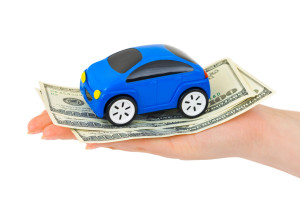Dear Liz: I read that the credit bureaus have started deleting black marks from people’s credit reports. This is good news for me. I have never been late on a house payment in 30-plus years, but my credit is in the low 600s due to a loan I co-signed for an ex-girlfriend who has been chronically late.
Answer: The records the credit bureaus are deleting won’t help improve your scores.
The three bureaus — Equifax, Experian and TransUnion — are removing virtually all civil court judgments and many tax liens from credit reports. Tax liens result from unpaid state or federal tax bills and civil judgments are court rulings from lawsuits filed over old debts, unpaid child support, evictions and other non-criminal disputes.
Judgments and liens caused a lot of disputes and complaints about accuracy because the records were often missing key identifying information and weren’t regularly updated. The bureaus are removing the records that don’t include minimum identifying information such as Social Security numbers or dates of birth in addition to names and addresses. The records must also have been updated within the previous 90 days.
The deleted records are expected to lead to small credit score increases for most of the 12 million to 14 million people who have such black marks on their credit reports.
Your issue is different. Because you co-signed, the loan appears on your credit reports as well as your ex’s. Every late payment hurts your credit scores. If your ex had simply stopped paying, your scores would have plunged even more — but then would have begun to improve as your responsible use of credit began to offset the default.
After seven years and 180 days, the defaulted loan would no longer show up on your credit reports or affect your scores. Because your ex keeps paying, albeit late, your credit scores sustain fresh damage each time. Each late payment also resets the clock on how long the negative marks show up on your credit reports. You won’t begin to get relief until the loan is paid off or refinanced.
 Today’s top story: Why you should have a credit card even if you don’t carry a balance. Also in the news: Credit card debt is down in early 2017, how to take advantage of cooling car sales this summer, and how to avoid being a victim at the car repair garage.
Today’s top story: Why you should have a credit card even if you don’t carry a balance. Also in the news: Credit card debt is down in early 2017, how to take advantage of cooling car sales this summer, and how to avoid being a victim at the car repair garage.  Today’s top story: How to assess your credit card needs after divorce. Also in the news: Generation Z is off to a strong start with credit, why your friend has a better credit score than you, and how to ensure your gift cards don’t go to waste.
Today’s top story: How to assess your credit card needs after divorce. Also in the news: Generation Z is off to a strong start with credit, why your friend has a better credit score than you, and how to ensure your gift cards don’t go to waste.
 Today’s top story: How credit use affects credit scores. Also in the news: Starting a business if you have student debt, how one couple crushed their debt, and how budgeting doesn’t have to suck if you make it a habit.
Today’s top story: How credit use affects credit scores. Also in the news: Starting a business if you have student debt, how one couple crushed their debt, and how budgeting doesn’t have to suck if you make it a habit. Today’s top story: 4 ways to ride the rising interest rates wave. Also in the news: Why you should set your own credit card limits, reasons why credit isn’t as boring as it sounds, and more than 1 million student loan borrowers are in default.
Today’s top story: 4 ways to ride the rising interest rates wave. Also in the news: Why you should set your own credit card limits, reasons why credit isn’t as boring as it sounds, and more than 1 million student loan borrowers are in default.  Today’s top story: Don’t hit the brakes on uninsured motorist coverage. Also in the news: Giving your child excellent credit, the pros and cons of telemedicine, and how to trim your tax burden.
Today’s top story: Don’t hit the brakes on uninsured motorist coverage. Also in the news: Giving your child excellent credit, the pros and cons of telemedicine, and how to trim your tax burden.  Today’s top story: How to make the 10 years before retirement count. Also in the news: Tips on reining in holiday spending, which generation has the best credit score, and which insurance most car renters can say no to.
Today’s top story: How to make the 10 years before retirement count. Also in the news: Tips on reining in holiday spending, which generation has the best credit score, and which insurance most car renters can say no to.